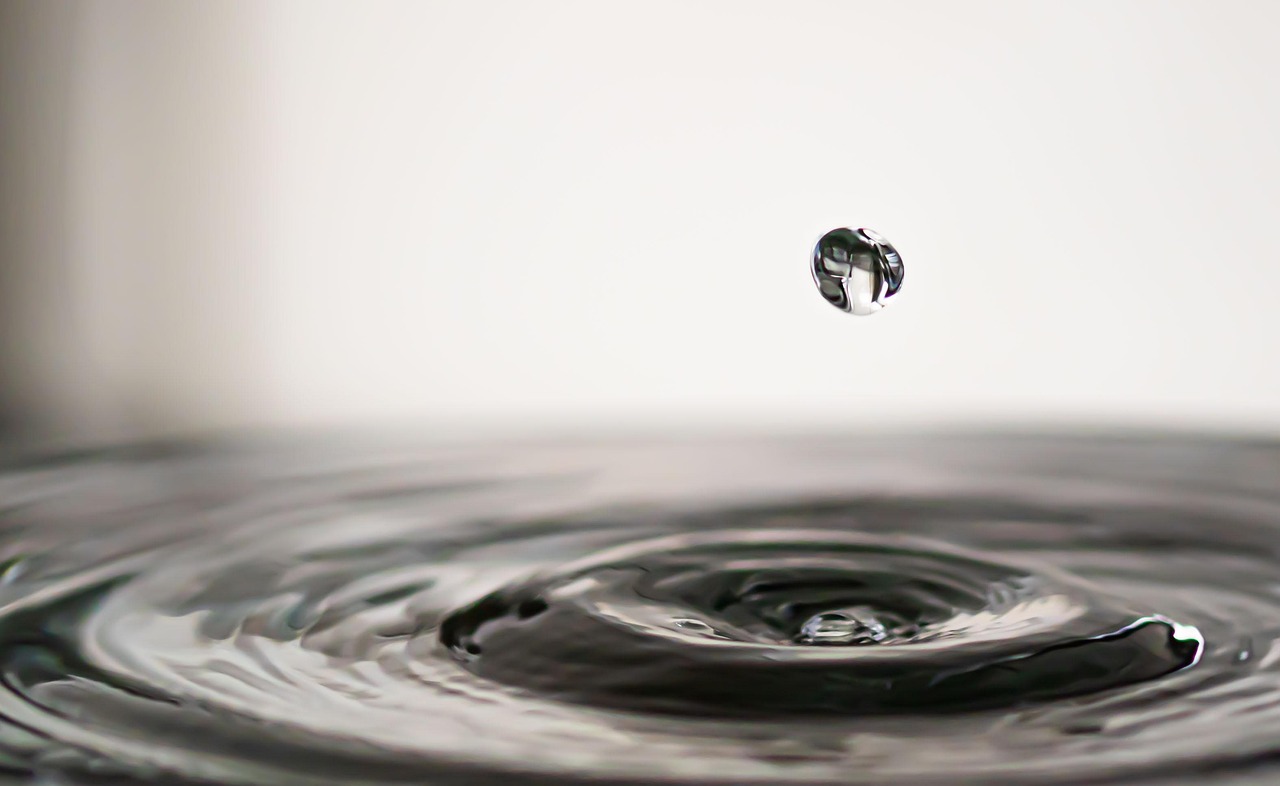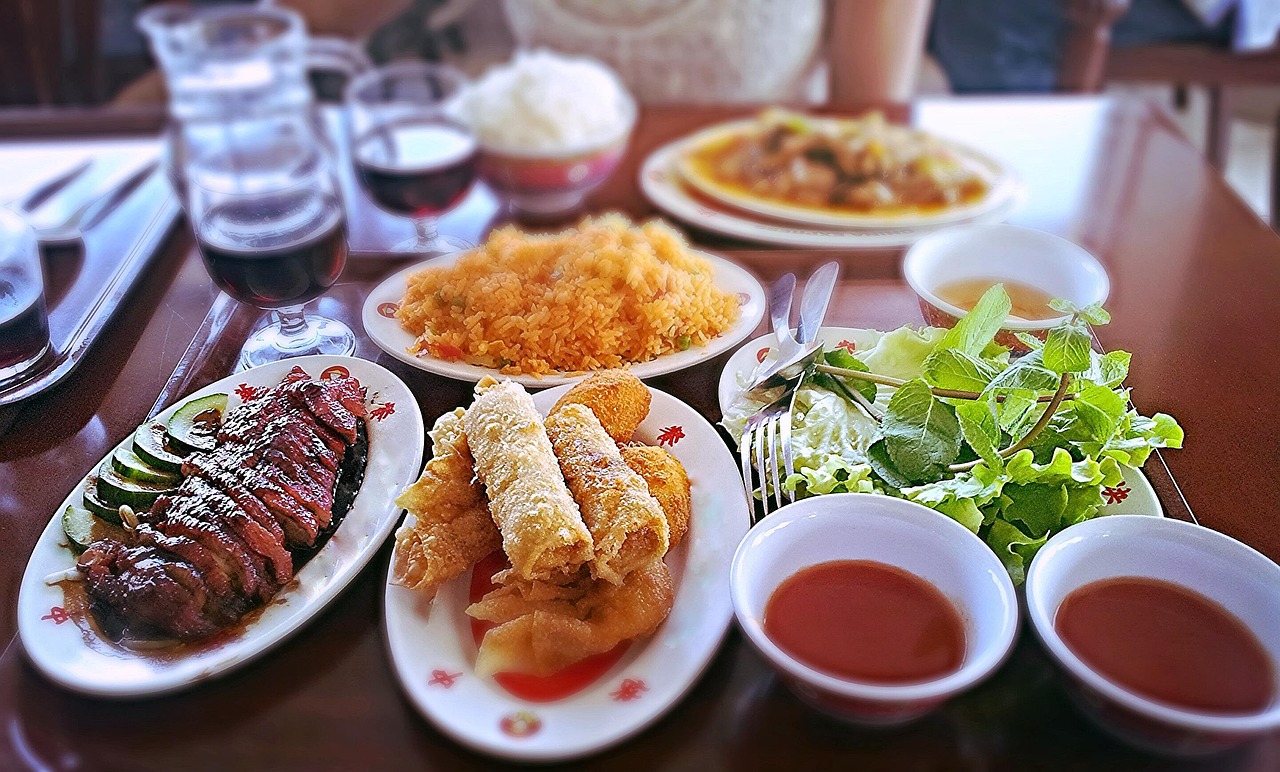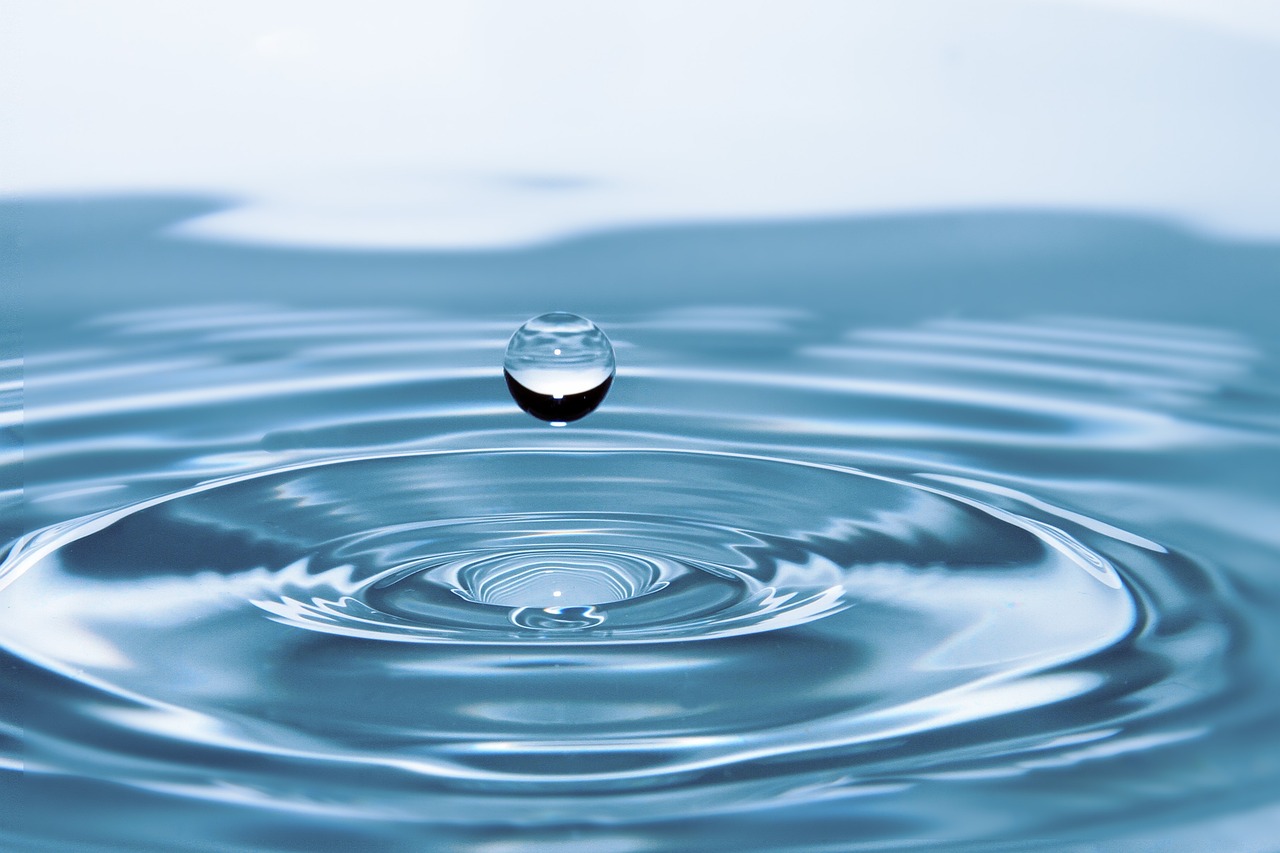This article delves into the critical question of whether it is permissible to drink water before a fasting blood test. We will explore the implications for test results, gather expert opinions, and provide practical tips for patients preparing for these tests.
Understanding Fasting Blood Tests
Fasting blood tests are essential diagnostic tools that require patients to abstain from food and beverages for a specified period. While the general guideline is to refrain from all intake, understanding the specifics of fasting can clarify the role of water consumption during this time.
Why Fasting is Important for Blood Tests
Fasting is crucial for obtaining accurate blood test results. When patients eat or drink before their tests, it can introduce variables that may skew the blood composition. This is particularly important for diagnosing various health conditions, as precise measurements are necessary for effective treatment.
- The Role of Glucose Levels: Fasting is especially vital for tests that measure glucose levels. Food intake can significantly alter blood sugar readings, potentially leading to misdiagnoses.
- Effects of Eating on Blood Sugar: Consuming food before a test can cause spikes in blood sugar levels, making it essential to adhere to fasting guidelines for accurate assessments of diabetes and metabolic health.
- Variability in Test Results: Even minor deviations from fasting can lead to variability in test outcomes, underscoring the importance of strict adherence to pre-test instructions.
Which Tests Require Fasting?
Not all blood tests necessitate fasting. It is essential for patients to understand which specific tests require fasting to prepare accordingly without unnecessary restrictions. Common tests that often require fasting include lipid panels and glucose tests.
Drinking water is generally permitted and often encouraged before a fasting blood test. Staying hydrated helps maintain optimal blood volume and can enhance the quality of the blood sample drawn. Hydration is beneficial and does not interfere with the test results.
Hydration and Blood Sample Quality
Proper hydration can improve the quality of blood samples, making it easier for healthcare professionals to draw blood and reducing discomfort. Dehydration can lead to collapsed veins, making the procedure more challenging.
Expert Opinions on Water Consumption
Healthcare professionals widely agree that water does not interfere with fasting blood tests. Many experts recommend that patients drink water freely prior to their appointment, as it can aid in the testing process.
Practical Tips for Fasting Blood Tests
- When to Schedule Your Test: Choosing the right time for a fasting blood test can minimize discomfort and improve accuracy. Scheduling tests in the morning after an overnight fast is often recommended.
- What to Avoid Before Testing: In addition to food, certain beverages and substances should be avoided before a fasting blood test. These include coffee, alcohol, and any sugary drinks, as they can affect test results.
Common Myths About Fasting Blood Tests
- Myth: You Can’t Drink Anything: A common misconception is that fasting means complete abstinence from all liquids. In reality, water is typically acceptable and beneficial.
- Myth: Fasting is Dangerous: While fasting can be uncomfortable, it is generally safe for most individuals when properly managed and monitored by healthcare professionals.
In summary, understanding the guidelines surrounding fasting blood tests, particularly regarding water consumption, can significantly enhance the testing experience. Staying hydrated is not only permissible but also advantageous, ensuring that patients receive accurate and reliable results.

Understanding Fasting Blood Tests
Fasting blood tests are a common procedure used to assess various health conditions by analyzing blood samples. These tests require patients to refrain from consuming food and beverages for a specific period, typically 8 to 12 hours prior to the test. However, the specifics of fasting can vary, leading to questions about the role of water intake during this time.
Understanding the Importance of Fasting
Fasting is crucial for obtaining accurate blood test results. When a patient eats or drinks, it can introduce variables that may alter the composition of their blood, potentially leading to misdiagnosis. For instance, glucose levels can fluctuate significantly after food intake, which is particularly important for tests related to diabetes and metabolic health.
How Fasting Affects Blood Sugar Levels
During fasting, the body relies on stored energy, which stabilizes blood sugar levels. If a patient consumes food or drinks other than water, it can cause spikes in glucose levels, resulting in misleading test outcomes. This is why healthcare providers often stress the importance of adhering to fasting guidelines.
Variability in Test Results
Even minor deviations from the fasting protocol can lead to variability in test results. For example, consuming just a small amount of sugar can skew results in tests designed to measure insulin sensitivity or glucose tolerance. Therefore, it is essential for patients to follow pre-test instructions closely.
Which Tests Require Fasting?
- Glucose tests
- Lipid panel (cholesterol tests)
- Basic metabolic panel
- Comprehensive metabolic panel
Can I Drink Water Before a Fasting Blood Test?
Yes, drinking water is generally permitted and often encouraged before a fasting blood test. Staying hydrated can not only help maintain overall health but can also improve the quality of the blood sample collected. Hydration aids in easier blood draws and can minimize discomfort during the procedure.
Expert Opinions on Water Consumption
Many healthcare professionals agree that consuming water does not interfere with fasting blood tests. In fact, experts often recommend that patients drink water to ensure they are well-hydrated before their appointment. This advice is particularly relevant for individuals who may find it challenging to fast for extended periods.
Practical Tips for Fasting Blood Tests
- Schedule Your Test Wisely: Morning appointments are ideal, as they follow an overnight fast, minimizing discomfort.
- Stay Hydrated: Drink water leading up to your test to maintain hydration levels.
- Avoid Certain Substances: Refrain from consuming coffee, alcohol, or sugary drinks prior to the test to ensure accurate results.
Common Myths About Fasting Blood Tests
- Myth: You Can’t Drink Anything: Many believe fasting means complete abstinence from all liquids; however, water is typically acceptable and beneficial.
- Myth: Fasting is Dangerous: While fasting can be uncomfortable, it is generally safe for most individuals when managed properly.
In conclusion, understanding the nuances of fasting blood tests, including the role of water intake, can help patients prepare effectively for their appointments. By following guidelines and staying informed, individuals can ensure they receive accurate and reliable test results.
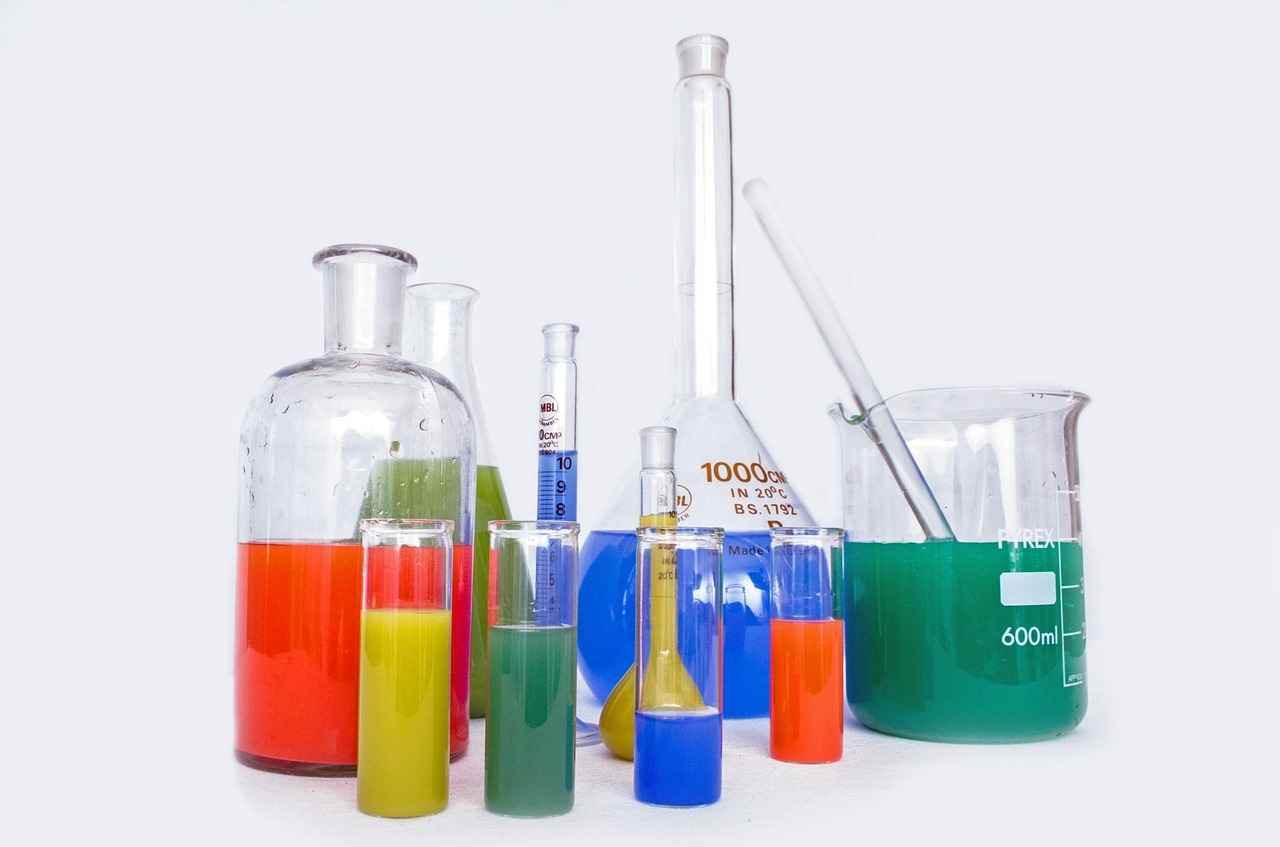
Why Fasting is Important for Blood Tests
Fasting is a critical component of many blood tests, primarily because it helps to ensure the accuracy of the results. When patients fast, they abstain from food and certain beverages for a specified period, typically 8 to 12 hours prior to the test. This practice is essential for several reasons:
- Elimination of Dietary Influences: Food consumption can significantly alter blood composition, introducing variables that may skew test results. For instance, eating can elevate glucose and lipid levels, leading to potential misinterpretations of metabolic health.
- Standardization of Conditions: Fasting creates a standardized environment, allowing healthcare professionals to compare results across different patients more effectively. This consistency is vital for diagnosing conditions such as diabetes, hyperlipidemia, and other metabolic disorders.
- Improved Diagnostic Accuracy: Accurate diagnosis often hinges on precise measurements. Fasting minimizes fluctuations in blood components, providing clearer insights into a patient’s health status. For example, a fasting blood glucose test can reveal whether a patient has normal, prediabetic, or diabetic levels.
Additionally, fasting may also play a role in the assessment of kidney function and liver enzymes. Elevated levels of certain substances in the blood can indicate underlying health issues, and fasting helps to avoid false positives that could lead to unnecessary anxiety or further testing.
The Role of Glucose Levels
One of the most critical aspects of fasting blood tests is their role in monitoring glucose levels. After eating, blood sugar levels naturally rise, which can complicate the interpretation of results. For example, a patient who has recently consumed a meal may present with elevated glucose levels, leading to a misdiagnosis of diabetes. Therefore, fasting is particularly important in tests related to glucose metabolism.
Effects of Eating on Blood Sugar
When food is consumed, carbohydrates are broken down into glucose, causing an immediate spike in blood sugar levels. This spike can last for several hours, making it essential for patients to adhere to fasting guidelines. By doing so, they can ensure that their blood sugar levels reflect their true metabolic state, allowing for more accurate assessments and treatment plans.
Variability in Test Results
Even minor deviations from fasting guidelines can lead to variability in test outcomes. For instance, if a patient eats a small snack before a test, it may not significantly impact their results, but it could still introduce enough variability to affect the interpretation. This underscores the importance of strict adherence to fasting protocols to achieve reliable and consistent test results.
Which Tests Require Fasting?
Not all blood tests necessitate fasting, but understanding which specific tests do is crucial for patients. Common tests that typically require fasting include:
- Blood glucose tests
- Lipid panels (cholesterol and triglycerides)
- Certain liver function tests
- Iron tests
Patients should consult with their healthcare providers to determine the necessity of fasting for their specific tests.
In summary, fasting is an essential practice that significantly enhances the accuracy and reliability of blood test results. By eliminating dietary influences and standardizing conditions, it allows healthcare professionals to diagnose and manage various health conditions more effectively.
The Role of Glucose Levels
Fasting plays a crucial role in ensuring the accuracy of blood tests, particularly those that measure glucose levels. When patients consume food or beverages prior to these tests, it can lead to significant fluctuations in blood sugar readings. This variability can result in misdiagnosis or inappropriate treatment plans, making it essential to adhere to fasting guidelines.
When we eat, our bodies digest food and release glucose into the bloodstream. This process is crucial for providing energy but can also skew test results if the patient is not fasting. For example, a person who has just eaten may have elevated glucose levels, which could incorrectly suggest they have diabetes or another metabolic disorder. Therefore, ensuring that patients fast before glucose testing is vital for obtaining a true picture of their metabolic health.
Understanding the Importance of Fasting
Fasting not only helps in stabilizing glucose levels but also assists in eliminating other variables that can affect blood composition. For instance, the consumption of carbohydrates can lead to a temporary spike in insulin, which in turn affects blood sugar levels. This means that even small amounts of food can lead to misleading results during diagnostic testing.
Variability in Blood Sugar Levels
Even minor deviations from fasting guidelines can lead to significant variability in test outcomes. For instance, a person who fasts for only 6 hours instead of the recommended 8-12 hours may still have elevated glucose levels, which could lead to unnecessary follow-up tests or treatments. This underscores the importance of strict adherence to pre-test instructions.
What Happens When You Don’t Fast?
- Inaccurate Diagnoses: Non-fasting can lead to false positives or negatives in diabetes screening.
- Unnecessary Stress: Patients may experience anxiety if they receive unexpected results that require further testing.
- Increased Healthcare Costs: Misdiagnosis can lead to additional tests, treatments, and consultations, increasing healthcare expenses.
Why Glucose Testing is Different
Unlike some blood tests that may allow for food or drink prior to testing, glucose tests are particularly sensitive. The American Diabetes Association recommends fasting for at least 8 hours before a fasting plasma glucose test. This is to ensure that the results reflect the body’s baseline glucose levels without interference from recent food intake.
Expert Opinions on Fasting for Glucose Testing
Healthcare professionals emphasize the importance of fasting before glucose tests. According to Dr. Jane Smith, an endocrinologist, “Fasting is not just a formality; it’s a necessary step to ensure that we are getting accurate readings that can guide treatment decisions.” This expert insight highlights the critical nature of following fasting protocols.
Conclusion
In summary, fasting is essential for accurate glucose level testing. By abstaining from food and drink, patients can ensure that their test results accurately reflect their metabolic state. Understanding the implications of fasting and adhering to guidelines can significantly impact health outcomes and lead to more effective management of conditions like diabetes.
Effects of Eating on Blood Sugar
When it comes to blood sugar levels, the timing and content of meals play a crucial role, especially before undergoing medical tests. Eating prior to a fasting blood test can lead to significant fluctuations in glucose levels, which may compromise the accuracy of the results. Understanding how food intake affects blood sugar is essential for anyone preparing for such tests.
After consuming food, particularly those high in carbohydrates, the body breaks down these nutrients into glucose. This process causes a temporary spike in blood sugar levels, which can be misleading during diagnostic assessments. For individuals being tested for diabetes or other metabolic conditions, even slight variations in blood sugar readings can lead to misdiagnosis or inappropriate treatment plans.
Fasting before blood tests is designed to create a baseline for accurate measurement of various components in the blood, including glucose. When patients adhere to fasting guidelines, healthcare providers can obtain a clearer picture of their metabolic health. This is particularly critical for tests such as the fasting blood glucose test or the oral glucose tolerance test, where precise measurements are vital.
When patients consume food before these tests, the resulting spike in blood sugar can lead to false highs in glucose readings. As a result, healthcare providers may misinterpret these readings as indicators of diabetes or insulin resistance, potentially leading to unnecessary anxiety and further testing.
Even small deviations from fasting can introduce variability in test outcomes. For instance, a patient who has a small snack before a test may experience a blood sugar level that is significantly higher than their true fasting state. This variability underscores the importance of strict adherence to pre-test instructions, as it provides the most reliable data for healthcare professionals.
Individuals with a history of diabetes, insulin resistance, or metabolic syndrome should be particularly vigilant about following fasting guidelines. Additionally, those undergoing routine health checks should also consider the implications of food intake on their test results. It is always advisable to consult with a healthcare provider about specific fasting requirements prior to testing.
- Always follow your healthcare provider’s instructions regarding fasting.
- Avoid any food or drink except for water, which is generally allowed.
- Schedule tests in the morning to minimize fasting duration and discomfort.
- Communicate any medications or supplements you are taking, as these can also impact test results.
In summary, the effects of eating on blood sugar are significant and can lead to inaccurate test results if fasting guidelines are not followed. For anyone preparing for a fasting blood test, it is crucial to understand the importance of abstaining from food and adhering to recommended practices. This ensures that healthcare providers can make informed decisions based on accurate data, ultimately leading to better health outcomes.
Variability in Test Results
When undergoing fasting blood tests, it is critical to understand that even minor deviations from the prescribed fasting guidelines can lead to significant variability in test results. This variability can have serious implications for both diagnosis and treatment. Therefore, adhering strictly to pre-test instructions is imperative for obtaining accurate results.
Fasting blood tests are designed to measure various substances in the blood, including glucose, cholesterol, and other metabolic markers. These tests require patients to refrain from eating and drinking for a specified period, typically 8 to 12 hours. The purpose of fasting is to eliminate the impact of recent food intake on blood composition, which can skew results and lead to misinterpretations.
One of the most crucial aspects of fasting is its role in stabilizing glucose levels. For instance, when a patient consumes food, especially carbohydrates, it can lead to an immediate spike in blood sugar levels. This spike can complicate the assessment of conditions like diabetes. Therefore, ensuring that fasting protocols are followed meticulously is essential to avoid misleading results.
Moreover, the variability in test outcomes can stem from several factors, including the timing of the last meal, the types of food consumed, and even the hydration status of the patient. For example, dehydration can concentrate blood components, potentially leading to falsely elevated levels of certain markers. Hence, while patients are advised to fast, they are generally encouraged to drink water to maintain hydration without affecting the test results.
Healthcare professionals frequently emphasize the need for strict adherence to fasting guidelines. Even small deviations, such as snacking or consuming non-water beverages, can introduce variability. This can lead to a range of issues, from misdiagnosis to inappropriate treatment plans. For instance, a patient who consumes a small amount of juice before a fasting glucose test may present with elevated glucose levels, resulting in a diabetes diagnosis that is not accurate.
Understanding the specific requirements for fasting blood tests is vital. Not all tests necessitate fasting, and knowing which ones do can help patients prepare without unnecessary restrictions. Some tests, like lipid panels, require fasting to ensure the accuracy of cholesterol readings, while others may not be affected by recent food intake.
In addition to understanding fasting requirements, patients should also be aware of what to avoid before testing. Aside from food, certain beverages, such as coffee and alcohol, can interfere with test results. Therefore, it is crucial to follow the guidance provided by healthcare professionals to ensure the most accurate outcomes.
In summary, variability in test results due to deviations from fasting protocols highlights the importance of strict adherence to pre-test instructions. Patients should be well-informed about the implications of their dietary choices leading up to the test. By following guidelines and consulting with healthcare providers, individuals can help ensure that their fasting blood tests yield accurate and reliable results.
Which Tests Require Fasting?
When it comes to blood tests, understanding which ones require fasting is crucial for patients to avoid unnecessary restrictions and ensure accurate results. Not all blood tests necessitate fasting, but knowing the specifics can help streamline the testing process and alleviate any confusion.
Fasting blood tests typically require patients to refrain from eating or drinking anything except water for a certain period before the test. This is primarily to ensure that the results are not influenced by recent food intake. However, the need for fasting can vary depending on the type of test being conducted.
- Glucose Tests: Fasting is essential for glucose testing, particularly for diagnosing diabetes. Food intake can significantly raise blood sugar levels, leading to inaccurate results.
- Lipid Panel: This test measures cholesterol and triglyceride levels. Fasting helps provide a clearer picture of cardiovascular health, as recent meals can alter lipid levels.
- Liver Function Tests: Certain liver function tests may require fasting to ensure that the results accurately reflect liver health without interference from recent food consumption.
- Iron Studies: Tests that assess iron levels in the blood often require fasting to avoid fluctuations caused by food intake, which can skew results.
Many blood tests do not require fasting, allowing patients to maintain their regular eating and drinking habits. Some of these tests include:
- Complete Blood Count (CBC): This test evaluates overall health and detects a variety of disorders, including anemia and infection, without the need for fasting.
- Thyroid Function Tests: Tests that measure thyroid hormone levels typically do not require fasting and can be performed at any time of day.
- Vitamin and Mineral Tests: Many vitamin and mineral tests can be conducted without fasting, although specific instructions may vary depending on the test.
Adhering to the fasting guidelines provided by healthcare professionals is essential for obtaining accurate results. Even small deviations in fasting can lead to variability in test outcomes, potentially causing misdiagnosis or inappropriate treatment plans. Therefore, understanding which tests require fasting can help patients prepare adequately.
Patients should always consult with their healthcare providers regarding fasting requirements for specific blood tests. Medical professionals can provide personalized advice based on individual health conditions and the specific tests being ordered. This ensures that patients are well-informed and can follow the necessary protocols to achieve accurate results.
In summary, while fasting is a critical component for certain blood tests, particularly those evaluating glucose and lipid levels, many tests do not require fasting. By understanding which tests necessitate fasting and following the guidelines provided by healthcare professionals, patients can ensure the accuracy of their test results and avoid unnecessary restrictions on their daily routines.
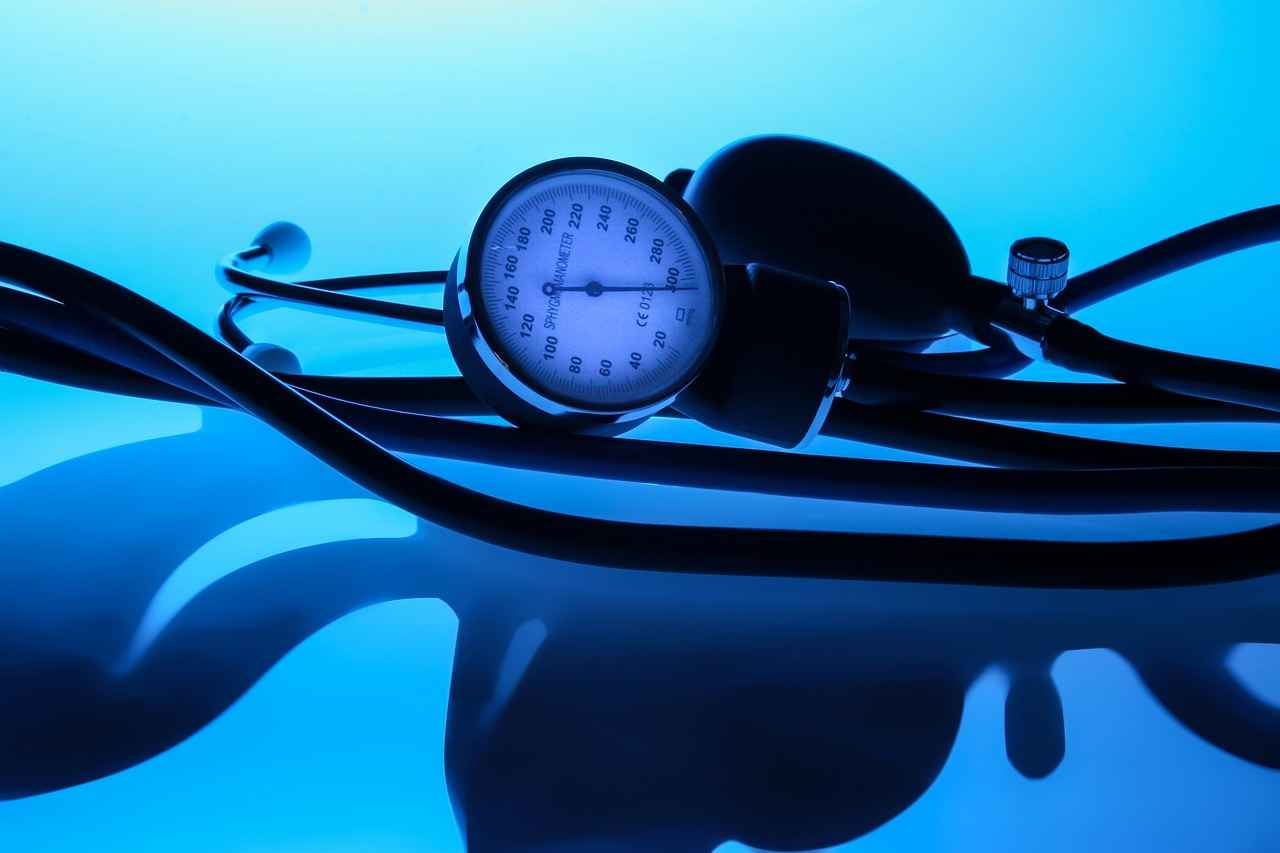
Can I Drink Water Before a Fasting Blood Test?
When preparing for a fasting blood test, many patients wonder about the rules regarding water consumption. This inquiry is crucial, as hydration plays a significant role in both comfort and the accuracy of test results. In this article, we will delve into the importance of hydration, clarify expert opinions, and provide practical tips for patients preparing for their blood tests.
Understanding Fasting Blood Tests
Fasting blood tests are designed to measure various components in the blood, often requiring patients to abstain from food and drinks for a specific period, typically 8 to 12 hours. However, the specifics of fasting can sometimes be confusing, particularly concerning water intake.
Importance of Hydration
Staying hydrated before a fasting blood test is generally encouraged. Drinking water helps to maintain hydration levels, which can improve the quality of blood samples. Adequate hydration can make it easier for healthcare professionals to draw blood, potentially reducing discomfort during the procedure.
Expert Opinions on Water Consumption
Healthcare professionals widely agree that drinking water does not interfere with the results of fasting blood tests. In fact, many recommend that patients drink water to stay hydrated. This guidance is particularly relevant for tests that require accurate blood measurements, as dehydration can lead to concentrated blood samples, which may skew results.
Benefits of Drinking Water Before Testing
- Improved Sample Quality: Hydration can help ensure that blood samples are of high quality, facilitating accurate laboratory analysis.
- Reduced Discomfort: Staying hydrated can make the blood draw process smoother and less painful.
- Enhanced Patient Experience: Drinking water can help alleviate feelings of dizziness or weakness that some patients may experience when fasting.
Practical Tips for Fasting Blood Tests
To ensure a smooth experience when preparing for a fasting blood test, consider the following tips:
- Schedule Wisely: If possible, book your test in the morning after an overnight fast to minimize discomfort.
- Stay Hydrated: Drink plenty of water before your appointment, as long as it is allowed by your healthcare provider.
- Avoid Certain Substances: Stay clear of coffee, tea, and alcohol, as these can affect your results.
Common Myths About Fasting Blood Tests
There are several misconceptions surrounding fasting blood tests that can lead to unnecessary anxiety. One prevalent myth is that fasting means complete abstinence from all liquids. In reality, water is typically acceptable and can be beneficial. Another myth is that fasting is dangerous; while it can be uncomfortable, it is generally safe for most individuals when managed properly.
Conclusion
In summary, drinking water before a fasting blood test is not only permissible but often encouraged. Staying hydrated can enhance the quality of blood samples and improve the overall experience for patients. If you have any specific concerns or questions regarding your fasting blood test, it is always best to consult with your healthcare provider for tailored advice.
Hydration and Blood Sample Quality
Hydration plays a crucial role in the quality of blood samples, significantly impacting the ease with which healthcare professionals can draw blood and the overall comfort of the procedure for patients. Maintaining adequate hydration before a fasting blood test can enhance the viscosity of blood, making it less thick and easier to extract. This is particularly important for individuals who may have veins that are more challenging to access.
When the body is well-hydrated, blood volume increases, which can lead to more prominent veins. This makes it easier for phlebotomists to locate a suitable vein and reduces the likelihood of multiple attempts to draw blood. Consequently, staying hydrated can help minimize discomfort and anxiety associated with blood draws.
Moreover, hydration can also contribute to the accuracy of test results. Dehydration can lead to hemoconcentration, a condition where the concentration of blood components increases due to reduced plasma volume. This can skew test results, potentially leading to misinterpretations of a patient’s health status. For example, elevated levels of certain substances, like electrolytes or glucose, may be observed in dehydrated individuals, which could mislead healthcare providers.
Experts in the field of phlebotomy and laboratory medicine emphasize the importance of hydration prior to blood tests. According to research, drinking water before a fasting blood test is generally considered acceptable and even beneficial. Medical professionals often recommend that patients drink water to maintain hydration while avoiding any caloric intake that could interfere with test results.
- Benefits of Staying Hydrated:
- Improved blood flow and sample quality
- Reduced discomfort during blood draws
- Minimized risk of hemoconcentration
- Recommended Practices:
- Drink at least 8-10 ounces of water before the test
- Avoid beverages with caffeine or sugar
- Consult with your healthcare provider if unsure about hydration guidelines
While hydration is beneficial, patients should be cautious not to overhydrate, as excessive fluid intake can also lead to complications. It is essential to strike a balance, ensuring that the body is adequately hydrated without going to extremes. A good rule of thumb is to drink enough water to feel comfortably hydrated, which can be identified by the color of urine—light yellow typically indicates proper hydration.
In summary, staying hydrated before a fasting blood test not only improves the quality of blood samples but also enhances the overall experience for patients. By adhering to hydration guidelines, individuals can facilitate a smoother blood draw process, reduce discomfort, and contribute to more accurate test results. Therefore, it is advisable for patients to prioritize hydration as part of their preparation for fasting blood tests.
Expert Opinions on Water Consumption
When preparing for a fasting blood test, many patients have questions about what they can consume before their appointment. One common query revolves around the consumption of water. Healthcare professionals often emphasize that drinking water does not interfere with fasting blood tests. In fact, hydration is typically encouraged as it can facilitate the blood draw process and improve the quality of the sample.
According to numerous healthcare experts, drinking water before a fasting blood test is not only permissible but also beneficial. Water does not contain calories or sugars that could skew test results. This is particularly important for tests that measure glucose and lipid levels, where even minor deviations can lead to inaccurate readings.
Many healthcare providers recommend drinking water to help maintain hydration. Dehydration can make veins less visible and more difficult to access, which can lead to discomfort during the blood draw. Staying hydrated can also ensure that the blood sample is of high quality, which is crucial for accurate laboratory analysis.
Furthermore, some studies suggest that hydration may play a role in improving metabolic markers. For instance, adequate fluid intake can help maintain stable blood viscosity and circulation, potentially leading to more reliable test outcomes. This is particularly relevant for patients undergoing tests for conditions such as diabetes or cardiovascular diseases, where precise measurements are essential.
- Drink water freely: Most guidelines suggest that patients can drink water up to the time of their blood test.
- Avoid flavored or sugary drinks: While water is acceptable, beverages like coffee, tea, or juices should be avoided as they may contain substances that could impact test results.
- Consult your healthcare provider: If you have specific health concerns or conditions, it’s best to discuss your hydration needs with your doctor prior to the test.
Some patients may worry that drinking water will affect their test outcomes. However, experts agree that water consumption does not alter the biochemical markers that the tests are designed to measure. Instead, it can alleviate anxiety and discomfort associated with the fasting period.
Additionally, there is a persistent myth that fasting blood tests require complete abstinence from all liquids. This misconception can lead to unnecessary stress and discomfort. In reality, hydration is key to ensuring a smooth testing process. Patients should feel reassured that drinking water is both safe and advisable.
In summary, expert consensus supports the idea that drinking water before a fasting blood test is not only acceptable but also advantageous. Staying hydrated can enhance the quality of the blood sample and make the process more comfortable for patients. As always, it is advisable to follow any specific instructions provided by healthcare professionals to ensure the most accurate test results.

Practical Tips for Fasting Blood Tests
Preparing for a fasting blood test can be a straightforward process if patients follow some practical tips. Ensuring a smooth experience is crucial for obtaining accurate results and minimizing any discomfort. Here are several recommendations that can help.
- Stay Hydrated: One of the most important tips is to drink plenty of water before your test. Hydration helps improve the quality of your blood sample, making it easier for healthcare professionals to draw blood. Additionally, being well-hydrated can reduce discomfort during the blood draw.
- Timing is Key: Scheduling your fasting blood test in the morning can be advantageous. Since you will be fasting overnight, it minimizes the duration of your fasting period and can make it easier to adhere to the guidelines. Many laboratories suggest early morning appointments for this reason.
- Avoid Certain Substances: In addition to food, there are specific beverages and substances that should be avoided before your test. It’s crucial to steer clear of coffee, tea, alcohol, and any sugary drinks, as these can skew your test results. Stick to plain water to stay hydrated.
- Understand Fasting Requirements: Not all blood tests require the same fasting duration. Some may require fasting for 8 to 12 hours, while others may have different guidelines. Always check with your healthcare provider to understand the specific requirements for your test.
- Communicate with Your Doctor: If you have any underlying health conditions or are taking medications, it’s important to discuss these with your healthcare provider. They can offer tailored advice on how to prepare for your test while considering your individual health needs.
- Plan for Post-Test Nutrition: After your blood test, it’s advisable to have a light snack or meal ready. This can help replenish your energy and stabilize your blood sugar levels, especially if you’ve been fasting for an extended period.
By adhering to these practical tips, patients can navigate the fasting blood test process with confidence. Proper preparation not only ensures accurate test results but also enhances the overall experience, making it a less stressful endeavor.
Remember, while fasting might seem daunting, following these guidelines can simplify the process and lead to better health outcomes. Always consult with your healthcare provider if you have any questions or concerns about your specific fasting blood test.
When to Schedule Your Test
When it comes to preparing for a fasting blood test, timing can significantly impact the results and the overall experience. A well-timed appointment can not only minimize discomfort but also enhance the accuracy of the test. Scheduling your test in the morning after an overnight fast is often recommended for various reasons.
Scheduling a fasting blood test in the morning allows patients to complete their overnight fast more easily. When you fast overnight, your body has sufficient time to process food from the previous day, leading to stable glucose levels and other blood components. This is crucial for tests that measure these parameters, as fluctuations can affect diagnostic outcomes.
Many individuals experience discomfort when fasting, including feelings of hunger or irritability. By scheduling your test early in the day, you can minimize the duration of fasting, reducing these uncomfortable feelings. Additionally, morning appointments often mean that you can resume normal eating and drinking sooner, making the entire process more manageable.
Accurate blood test results are essential for diagnosing conditions such as diabetes, cholesterol levels, and other metabolic disorders. Fasting helps eliminate variables that can skew results. For instance, if you eat or drink anything other than water before your test, it can lead to significant changes in your blood composition. This is particularly vital for tests measuring glucose and lipid profiles, where even minor deviations can lead to misinterpretations.
During a fasting blood test, a healthcare professional will draw a sample of your blood, usually from a vein in your arm. The procedure is quick and typically involves minimal discomfort. It’s advisable to inform the technician about any medications you are taking or any health conditions that may affect the test.
While fasting generally means abstaining from food and certain beverages, drinking water is typically encouraged. Staying hydrated can improve the quality of your blood sample, making it easier for healthcare professionals to draw blood. Dehydration can lead to collapsed veins, making the process more difficult and uncomfortable.
- Choosing the Wrong Time: Avoid scheduling tests during lunch hours or late in the day when fasting can feel more challenging.
- Ignoring Fasting Guidelines: Ensure you adhere strictly to fasting instructions provided by your healthcare provider.
- Not Staying Hydrated: Remember to drink water, as it can facilitate the blood draw process.
Ultimately, the best time to schedule your fasting blood test may vary based on individual health needs and circumstances. It’s vital to consult your healthcare provider for personalized advice. They can guide you on the best timing based on the specific tests being conducted and your overall health.
In summary, choosing the right time for a fasting blood test is crucial for minimizing discomfort and ensuring accurate results. Morning appointments after an overnight fast are generally the best option, allowing for a smoother and more effective testing experience.
What to Avoid Before Testing
When preparing for a fasting blood test, it is crucial to understand what substances and beverages should be avoided to ensure the most accurate test results. Many people are aware of the need to abstain from food, but the implications of consuming certain drinks can be equally significant. This section will delve into the specific items to avoid before testing and the reasons behind these recommendations.
- Coffee: While coffee is a popular morning beverage, it can interfere with blood test results. The caffeine and other compounds in coffee may affect glucose levels and lipid profiles, leading to misleading results. Therefore, it is advisable to avoid coffee for at least 8 to 12 hours prior to the test.
- Alcohol: Consuming alcohol before a fasting blood test can have detrimental effects on the accuracy of the results. Alcohol can significantly alter liver function tests and affect blood sugar levels. For this reason, it is recommended to abstain from alcohol for at least 24 hours before the test.
- Juices and Sugary Drinks: Even natural fruit juices can contain sugars that affect blood glucose levels. Sugary drinks can lead to spikes in blood sugar, which can complicate the diagnosis of conditions like diabetes. It is best to stick to plain water during the fasting period.
- Sweetened Beverages: Soft drinks and energy drinks often contain high levels of sugar and caffeine, both of which can skew test results. Avoid these beverages to ensure that your blood test reflects your true health status.
- Supplements and Medications: Certain vitamins and supplements, especially those containing biotin, can interfere with lab tests. Always consult with your healthcare provider regarding any medications or supplements you are taking prior to your blood test.
By adhering to these guidelines and avoiding specific beverages and substances, patients can contribute to the accuracy of their fasting blood tests. This not only aids in obtaining reliable results but also helps healthcare professionals make informed decisions regarding diagnosis and treatment.
It is essential to communicate with your healthcare provider about any concerns or questions regarding fasting requirements. Understanding the impact of what you consume before a blood test can lead to better health outcomes and more effective management of any underlying health conditions.
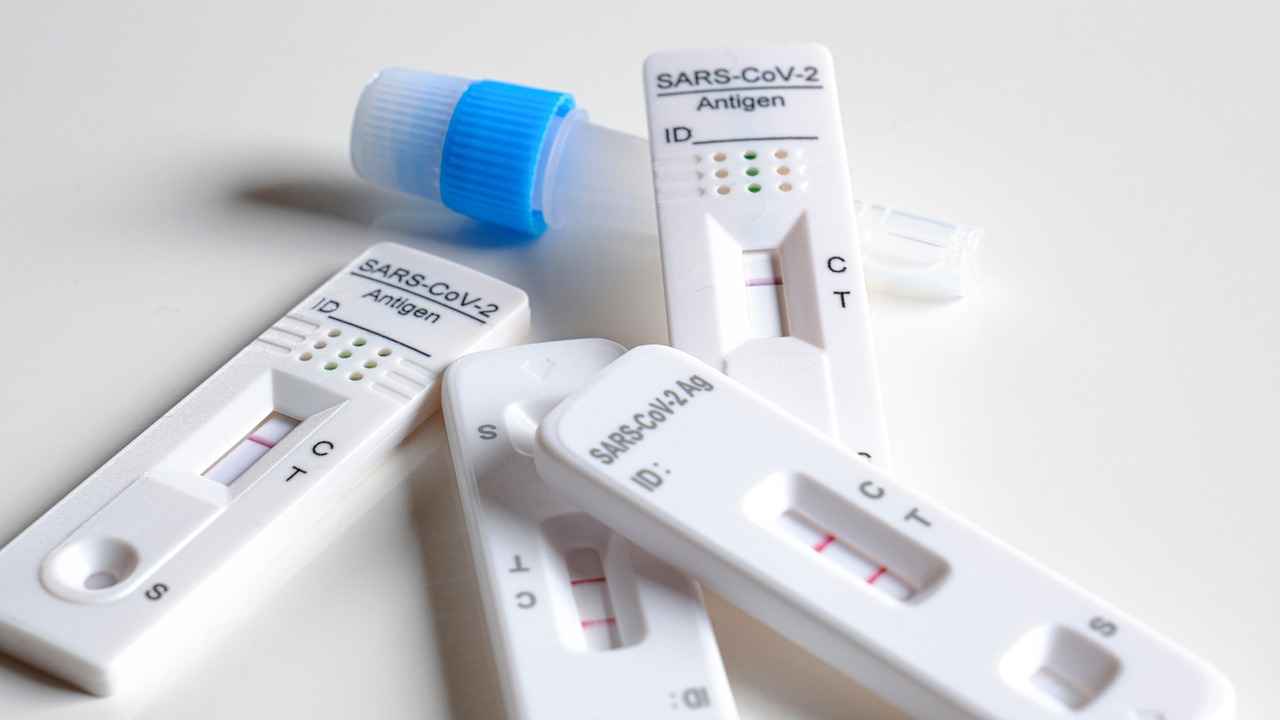
Common Myths About Fasting Blood Tests
Understanding the realities of fasting blood tests is essential for patients preparing for these important health assessments. Unfortunately, various misconceptions can lead to unnecessary anxiety and confusion. By addressing these myths, we aim to provide clarity and reassurance for individuals undergoing fasting blood tests.
- Myth: You Can’t Drink Anything
- Myth: Fasting is Dangerous
- Myth: Fasting is Only for Specific Tests
- Myth: You Must Fast for 24 Hours
- Myth: Fasting Blood Tests Are Only for Diabetics
- Myth: You Can Eat Light Snacks
- Myth: Fasting is Unnecessary for Routine Tests
One prevalent belief is that fasting requires complete abstinence from all liquids. This is a misconception. In most cases, drinking water is not only acceptable but encouraged before a fasting blood test. Staying hydrated helps improve blood sample quality, making it easier for healthcare professionals to draw blood.
Another common myth is that fasting can pose serious health risks. While fasting may cause discomfort for some individuals, it is generally safe for most people, especially when conducted under medical supervision. Healthcare professionals monitor patients’ health to ensure that fasting does not lead to adverse effects.
Many patients believe that fasting is necessary only for certain blood tests, such as glucose testing. However, fasting may also be recommended for lipid panels and other assessments. Understanding which tests require fasting can help patients prepare adequately and avoid unnecessary restrictions.
Some individuals think that fasting means abstaining from all food and drink for an entire day. In reality, most fasting blood tests require only a 12 to 14-hour fast. This shorter fasting period is usually manageable and does not significantly impact daily routines.
While fasting blood tests are crucial for diagnosing diabetes, they are not exclusive to this condition. Many healthcare providers use fasting tests to assess overall metabolic health and screen for various conditions. Recognizing the broader applications of fasting blood tests can help patients understand their importance.
Some patients believe that consuming light snacks, such as crackers or fruit, is acceptable during fasting. However, even small amounts of food can affect test results, leading to inaccurate readings. It’s best to stick to water only during the fasting period to ensure the most reliable outcomes.
Lastly, many people think fasting is not needed for routine blood tests. However, certain tests, like cholesterol and triglycerides, require fasting to ensure accurate results. Consulting with healthcare providers about specific test requirements can help clarify any doubts.
By dispelling these common myths surrounding fasting blood tests, patients can approach their testing with greater confidence and understanding. Knowledge empowers individuals to make informed decisions about their health, reducing anxiety and ensuring accurate test results.
Myth: You Can’t Drink Anything
When it comes to fasting blood tests, a common misconception persists: many individuals believe that fasting means complete abstinence from all liquids. However, this notion is not entirely accurate, as drinking water is typically acceptable and can even be beneficial before undergoing a fasting blood test.
Fasting blood tests are designed to measure various components in the blood, including glucose, cholesterol, and other markers essential for diagnosing health conditions. The primary goal of fasting is to eliminate any external factors that could skew the results. While it is crucial to avoid food, the role of water intake is often misunderstood.
Staying hydrated is vital for several reasons:
- Improved Sample Quality: Adequate hydration can enhance the quality of blood samples, making it easier for healthcare professionals to draw blood. This can reduce discomfort and ensure a more accurate analysis.
- Reduced Risk of Complications: Dehydration can lead to complications such as fainting or difficulty in drawing blood. By drinking water, patients can minimize these risks.
Healthcare professionals generally agree that drinking water does not interfere with the results of fasting blood tests. In fact, many experts recommend hydration as part of the preparation process. According to Dr. Jane Smith, a renowned endocrinologist, “Staying hydrated is essential for optimal blood sample quality, and patients should feel free to drink water before their tests.”
While water is permitted, it is essential to understand what constitutes a true fast:
- Allowed: Water
- Not Allowed: Juices, coffee, tea, and any caloric beverages
By adhering to these guidelines, patients can ensure their test results are both accurate and reliable.
Patients often have questions regarding the specifics of water consumption before a fasting blood test:
- How much water can I drink? While there is no strict limit, drinking a moderate amount (about 8-16 ounces) is generally recommended to maintain hydration without feeling overly full.
- Can I add lemon or other flavorings to my water? It is best to stick to plain water, as even small amounts of flavoring can potentially affect test results.
In addition to the myth about liquid consumption, there are other misconceptions surrounding fasting blood tests:
- Myth: Fasting is Dangerous. While fasting can be uncomfortable, it is generally safe for most individuals, particularly when monitored by healthcare professionals.
- Myth: All Tests Require Fasting. Not every blood test necessitates fasting, and understanding which tests do can alleviate unnecessary restrictions.
In summary, the belief that fasting means complete abstinence from all liquids is a misconception. Drinking water is not only permissible but also encouraged before a fasting blood test. By staying hydrated, patients can improve their experience and ensure accurate test results. Always consult with your healthcare provider for personalized advice regarding fasting and hydration before any medical tests.
Myth: Fasting is Dangerous
Fasting has long been surrounded by misconceptions, one of the most prevalent being that it poses significant risks to health. While it can be uncomfortable for some, fasting is generally safe for most individuals, especially when it is properly managed and monitored by healthcare professionals. Understanding the nuances of fasting can help demystify this practice and highlight its potential benefits.
Understanding Fasting
Fasting typically involves abstaining from all or certain foods and drinks for a specified period. This practice is often used in medical settings, particularly for blood tests, to ensure accurate results. It is essential to recognize that fasting does not equate to starvation; rather, it is a structured approach to temporarily restrict food intake.
Health Benefits of Fasting
- Improved Metabolic Health: Fasting can enhance insulin sensitivity, which is crucial for managing blood sugar levels.
- Cellular Repair: It triggers autophagy, a process where cells remove damaged components, potentially reducing the risk of diseases.
- Weight Management: Intermittent fasting can aid in weight loss and help maintain a healthy weight when combined with a balanced diet.
Who Should Be Cautious?
While fasting is safe for many, certain individuals should approach it with caution. People with diabetes, eating disorders, or other chronic health conditions should consult their healthcare provider before initiating any fasting regimen. Pregnant or breastfeeding women are also advised to seek professional guidance.
Monitoring During Fasting
For those who choose to fast, monitoring is key. Regular check-ins with healthcare professionals can help ensure that fasting does not lead to adverse effects. Listening to one’s body is crucial; if symptoms such as dizziness, excessive fatigue, or confusion occur, it may be necessary to break the fast.
Expert Opinions on Fasting
Many healthcare professionals advocate for fasting as a safe practice when done correctly. They emphasize the importance of understanding one’s health status and adjusting fasting practices accordingly. Hydration is particularly important, as drinking water during fasting can prevent dehydration without affecting blood test results.
Common Misunderstandings
Misconceptions about fasting often stem from a lack of understanding. For instance, some believe that fasting leads to nutrient deficiencies. However, when practiced intermittently, fasting allows individuals to consume all necessary nutrients during eating periods, thus maintaining a balanced diet.
Conclusion
In summary, while fasting can be uncomfortable, it is generally safe for most individuals when conducted under proper supervision. By debunking myths surrounding fasting, we can encourage a more informed approach to this practice, allowing individuals to reap its potential health benefits while minimizing risks.
Frequently Asked Questions
- Can I drink water before my fasting blood test?
Yes, drinking water is generally permitted and even encouraged before a fasting blood test. Staying hydrated can help improve the quality of your blood sample.
- What happens if I eat or drink something other than water?
Consuming food or certain beverages before your test can alter your blood composition, potentially leading to inaccurate results. It’s best to stick to water.
- How long should I fast before the test?
Typically, fasting for 8 to 12 hours is recommended, but it’s always wise to follow the specific instructions given by your healthcare provider.
- Are there any exceptions to the fasting rule?
While most blood tests require fasting, some do not. It’s important to check with your doctor to know which tests necessitate fasting.
- Is fasting safe for everyone?
Fasting is generally safe for most individuals, but those with certain health conditions should consult their doctor before undergoing a fasting blood test.


